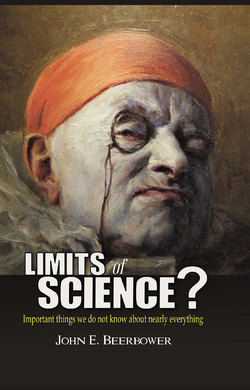Читать книгу Limits of Science? - John E. Beerbower - Страница 22
На сайте Литреса книга снята с продажи.
Falsifiability
ОглавлениеThe idea that theories should be subject to assessment and testing should not seem strange. Otherwise, one could hardly claim that theories are relevant to knowledge or understanding. Indeed, it would seem unscientific for a proponent of a theory to declare that it is unfair to require that the theory be subject to testing and possible disconfirmation. The position Karl Popper took was that the theory had to be capable of falsification for it to be a truly scientific theory. If, over time, experimental efforts to falsify the theory fail, one can increasingly become more confident that the theory is correct. However, this philosophical approach stresses the central role of criticism of and challenges to established theories and portrays the proper scientist as fully objective and psychologically prepared to reject his or her own theory in the face of falsification.
This characterization of science and scientific methodology has become widespread among philosophers of science and at least some scientists, especially physicists who have expressly addressed these methodological questions while touting their open-mindedness and objectivity. For example, as stated by Cox and Forshaw in their book in 2009: “In science, there are no universal truths, just views of the world that have yet to be shown to be false.” Brian Cox and Jeff Forshaw, Why Does E=mc2? (And why should we care?) (2009), p.xi. Or, as Deutsch puts it: “[T]he nature of science would be better understood if we called theories ‘misconceptions’ from the outset, instead of only after we have discovered their successors. Thus we could say that Einstein’s Misconception of Gravity was an improvement on Newton’s Misconception, which was an improvement on Kepler’s. The neo-Darwinian Misconception of Evolution is an improvement on Darwin’s Misconception, and his on Lamarck’s. If people thought of it like that, perhaps no one would need to be reminded that science claims neither infallibility nor finality.” The Beginning of Infinity, p.446. It is much less clear the extent to which working scientists (or, perhaps, it is more accurate to say scientists while working as scientists) really embrace and incorporate this methodological approach in the process of their work.
A strict Popperian approach might suggest that the scientist must be prepared to commit to reject a theory based upon obtaining an empirical result inconsistent with the theory’s prediction. In real life, of course, most scientists will be reluctant to quickly abandon an accepted theory, and rightly so. At a minimum, one would want to check carefully for errors in the experiment and would attempt to reproduce the results. If the inconsistent result still obtained, one would want to examine the theory with care to see if the result was truly inconsistent. Then, one would consider whether there was some minor adjustment that could be made in the theory, or in the theories upon which the test instrumentation or the test methodology were constructed, that would accommodate the inconsistent result without undermining the central elements of the theory.
